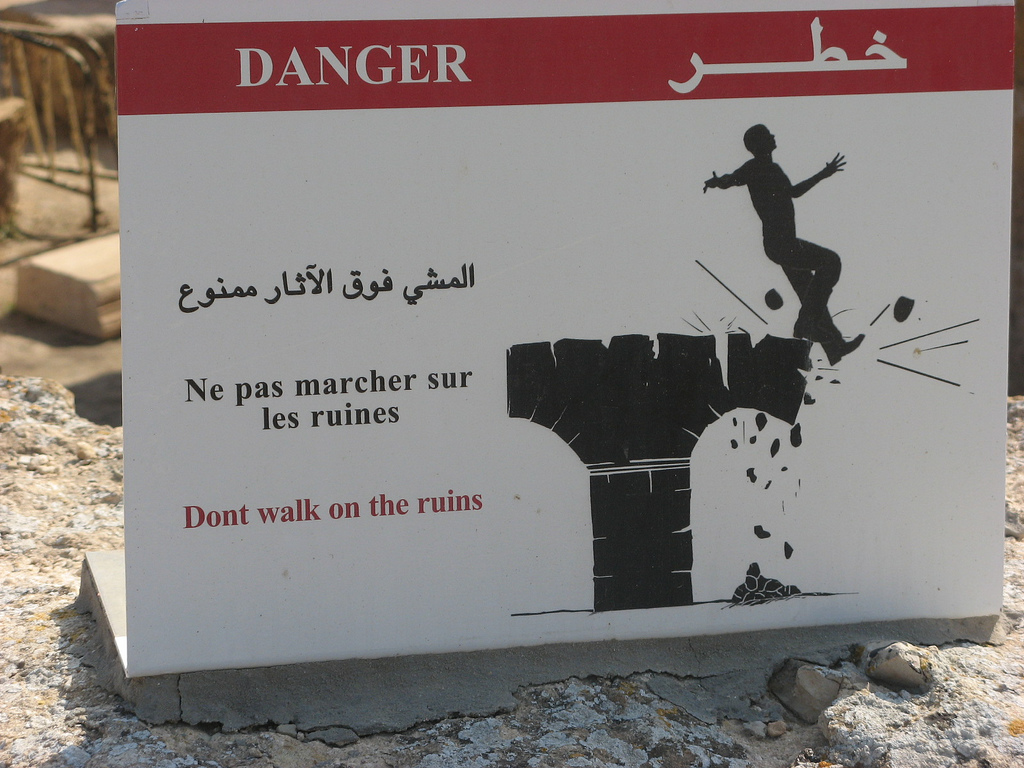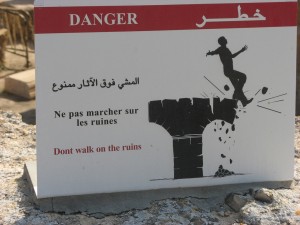This post represents the first of many posts outlining a particularly large research project/proposal I am working on currently (and have been for about the past year) discussing the role of mobile learning in the practice of History in higher education in developing nations. I started out, if you can believe this, much broader than this in terms of scope. I was originally intending to focus on Humanities practice in higher education in developing nations but upon reflection (and some gentle prodding by some respected professors) I am narrowing it down to History. Each of the Humanities subjects I was intending to pursue, although interdisciplinary, had some unique pedagogical practices and decidedly different output mechanisms so it is best to zero in on History.
So, back to my point. I am going to post a series of facets about this research here, starting with my research questions and assumptions, followed by a small Review of Literature, etc., in order to be as transparent as possible about my process and intentions, as well as solicit/collaborate with any and all willing to provide feedback. I have written about (and experienced firsthand) the effects of collaboration towards academic writing and am a big believer in it as good academic practice. I just wanted to practice what I preach by opening this up for discussion here.
Assumptions
I started this project based on my experience working with higher education in developing nations, specifically the African nations of Ghana, Tanzania, Zambia, South Africa, Kenya, Tunisia, and Egypt (and yes, I consider the last two to be African in a developmental context). I worked with universities in these nations towards information literacy, research practice, etc. and became enamored, as early as 2007, by the growing rise of mobile technology use towards knowledge dissemination (beginning with medical information, agricultural groups, literacy groups, etc.). Many parts of Africa were leapfrogging over a generation of technology (bandwidth based ICT) towards another (mobile) out of necessity and from this necessity spurred ingenuity. Some were more successful at this than others.
We now see a major push for localized innovation and some wonderful success stories from the region (iHub in Kenya stands out for me). Seeing this happen in informal (medical, agricultural) and private (industry) learning communities had me thinking that it is high time for higher education to embrace its potential as well, hence this research. Much work has already been done in this area, but my research fully intends to focus on expert level practice (the kind of practice commiserate with graduate level or faculty level collaboration in higher education) rather than information dissemination, resource management, etc. I want a full-fledged learning and collaborative community taking place exclusively (if needed) on mobile. As such, my initial (broad) research questions and assumptions for such a project are these:
- Does mobile learning for History in higher education in developing nations require a SMS-based solution? Such a design is indeed possible with the advent of tools like Frontline SMS allowing localized university disciplinary networks to cohesively interact via SMS managed from a simple server (even a laptop). My assumption here is that we cannot design for a multimodal environment until pricing points for multimedia mobile devices are low enough to saturate higher education in developing nations.
- If SMS-text based technologies are demanded, does this preclude that mobile learning environments are primarily dialogue based? According to Vygotsky (Nassaii & Swain, 2000), knowledge is social in nature and is constructed through a process of collaboration, interaction and communication among learners in social settings; SMS, in my opinion, can be appropriated to reflect this, but is dialogue based learning the optimal framework for mobile learning? Or are we simply importing a classroom/elearning hybrid pedagogy to the mobile sphere? This is a big question for my research as much of what is crafted in response to the research will depend on this assumption.
- Some previous research I have done in the past has led me to believe that social learning networks, mobile or otherwise, do not optimally reside in solitary institutional settings (ie, at one university) but rather work best in disciplinary settings across universities due to tribal disciplinary affinities. Does this assumption, with research born primarily from US/UK universities, hold true for universities in developing nations? Do disciplinary communities represent strong-tied networks or is higher education more localized (ie, institutional) in developing settings? Ideally, these networks are self-organizing and self-sustaining with mobile providing a platform for discussion, collaboration, contextualization, and even reflection and research dissemination. Should these mobile platforms exist at an institutional, regional, or much broader disciplinary level (across country or even countries)?
- Does participatory design for hybrid academic/technology projects have a cultural antecedent in developing nations? Namely, will a participatory design process capture the needs and uses of technology in higher education in developing nations if it runs counter to accepted notions of collaboration? An easier question would be, I suppose, what does collaboration look like in Tanzania as opposed to Ghana as opposed to the UK?
So that is where I am starting from and if anyone is willing to say I am way off-based here, I would be greatly appreciative. I should probably limit my discussion of developing nations to sub-Saharan African universities, most likely Ghanian universities or Tanzanian universities. Much work is already being done in Kenyan universities by Kenyan academics so I thought my research would be better served elsewhere.
Like I said, this is merely the first part (next would be the disciplinary practice of History and how it might be applicable to mobile learning-even pedagogical ‘containers’ for such learning (MOOCs?)). I also owe everyone a Review of Literature that is about a year too dated (I started this some time ago), but hopefully will prove helpful to someone.
More to come!






[…] Part 1: Questions and Assumptions […]
[…] Part 1: Questions and Assumptions […]